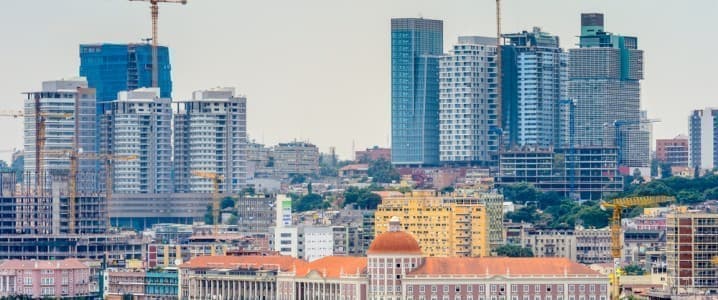Business
Sonangol Moves Toward Historic IPO to Transform Angola’s Economy

Angola’s state oil company, Sonangol, is set to initiate a landmark initial public offering (IPO) in the next 24 months, aiming to sell up to 30% of its shares. This move could significantly reshape not only the company but also the broader economic landscape of Angola. For decades, Sonangol has transcended its role as a petroleum producer, serving as a financial engine, a political instrument, and a national emblem. The decision to partially privatize stems from President João Lourenço‘s push for reform and signals to investors that Angola is committed to transformation.
The upcoming IPO is the culmination of extensive restructuring efforts that began in 2017. Once a sprawling conglomerate with ventures in banking, airlines, real estate, and telecommunications, Sonangol had become unwieldy and opaque. Under President Lourenço’s administration, the government has focused on streamlining operations, divesting non-core assets, and restoring financial discipline within the company. The listing is intended not only as a validation of these efforts but also as a launchpad for Sonangol’s next chapter.
Learning from Global Examples
Various national oil companies (NOCs) have undertaken similar privatization journeys. Notably, Petrobras in Brazil successfully raised billions through capital markets while maintaining state control. Despite facing political challenges and corruption allegations, Petrobras became a technically proficient operator and secured stable financing. Other models include Norway’s Equinor and Kazakhstan’s KazMunayGas, demonstrating that state-owned firms can harmonize national priorities with the transparency and accountability required by public shareholders.
Sonangol aims to emulate these successes. Angola’s oil production has declined from a peak of 1.8 million barrels per day (bpd) in 2008 to approximately 1.1 million bpd today. To reverse this trend, significant upstream investments are necessary. Accessing equity markets through the IPO could provide essential funding during a period when global capital for oil projects is constrained by the ongoing energy transition.
A successful IPO would further bind Sonangol to international reporting standards, corporate governance practices, and investor accountability, distancing it from its inefficient past.
A Broader Economic Strategy
The IPO is a crucial part of President Lourenço’s broader strategy to diminish the state’s dominant role in the economy. Under the government’s PROPRIV program, numerous state-owned enterprises and assets, including banks and factories, have been earmarked for privatization. Sonangol, regarded as the crown jewel of Angola’s economy, represents the most ambitious step in this reform agenda. A transparent and credible listing could signal to global investors that Angola is serious about fostering a business-friendly environment and committed to lasting reforms.
While opportunities abound, challenges remain. Investors will evaluate Sonangol’s valuation against a backdrop of declining reserves and uncertain long-term oil demand. The company’s governance will also face scrutiny, considering its historical ties to patronage and political influence. Nevertheless, if executed well, partial privatization could be transformative, aligning Sonangol with the discipline required by shareholders while ensuring that Angola retains control over its strategic asset.
The implications of Sonangol’s intended IPO extend beyond Angola. Other African NOCs, such as Ghana’s GNPC and Algeria’s Sonatrach, grapple with similar challenges, including aging production, increasing investment needs, and constrained public finances. Should Sonangol successfully illustrate that partial privatization can provide both capital and credibility, it may offer a roadmap for its peers across the continent.
Africa’s upstream potential is substantial, yet global capital is becoming increasingly selective. Investors are now meticulously examining governance, emissions intensity, and long-term resilience. A successful IPO for Sonangol could demonstrate that African NOCs can adapt to meet the new landscape of investment without forfeiting national control, instead blending it with the transparency and accountability that markets demand.
If executed successfully, the Sonangol IPO could yield more than just fresh capital. It could catalyze upstream investment, anchor broader privatization efforts, and reposition Angola in a fiercely competitive energy landscape. For Sonangol, this opportunity represents a chance to reinvent itself as a disciplined, globally credible operator, similar to how Petrobras leveraged its market listing to finance Brazil’s deepwater oil initiatives.
In essence, the IPO is not solely about Sonangol’s financial health; it embodies the potential for African NOCs to evolve and address the dual pressures of domestic expectations and global energy shifts. For Angola and the continent, the stakes are high. Success would signify the dawn of a new era of capital access, institutional credibility, and long-term competitiveness for Africa’s oil and gas sector.
-

 Health3 months ago
Health3 months agoNeurologist Warns Excessive Use of Supplements Can Harm Brain
-

 Health3 months ago
Health3 months agoFiona Phillips’ Husband Shares Heartfelt Update on Her Alzheimer’s Journey
-

 Science1 month ago
Science1 month agoBrian Cox Addresses Claims of Alien Probe in 3I/ATLAS Discovery
-

 Science1 month ago
Science1 month agoNASA Investigates Unusual Comet 3I/ATLAS; New Findings Emerge
-

 Science4 weeks ago
Science4 weeks agoScientists Examine 3I/ATLAS: Alien Artifact or Cosmic Oddity?
-

 Entertainment4 months ago
Entertainment4 months agoKerry Katona Discusses Future Baby Plans and Brian McFadden’s Wedding
-

 Science4 weeks ago
Science4 weeks agoNASA Investigates Speedy Object 3I/ATLAS, Sparking Speculation
-

 Entertainment4 months ago
Entertainment4 months agoEmmerdale Faces Tension as Dylan and April’s Lives Hang in the Balance
-

 World3 months ago
World3 months agoCole Palmer’s Cryptic Message to Kobbie Mainoo Following Loan Talks
-

 Science4 weeks ago
Science4 weeks agoNASA Scientists Explore Origins of 3I/ATLAS, a Fast-Moving Visitor
-

 Entertainment4 months ago
Entertainment4 months agoLove Island Star Toni Laite’s Mother Expresses Disappointment Over Coupling Decision
-

 Entertainment3 months ago
Entertainment3 months agoMajor Cast Changes at Coronation Street: Exits and Returns in 2025









